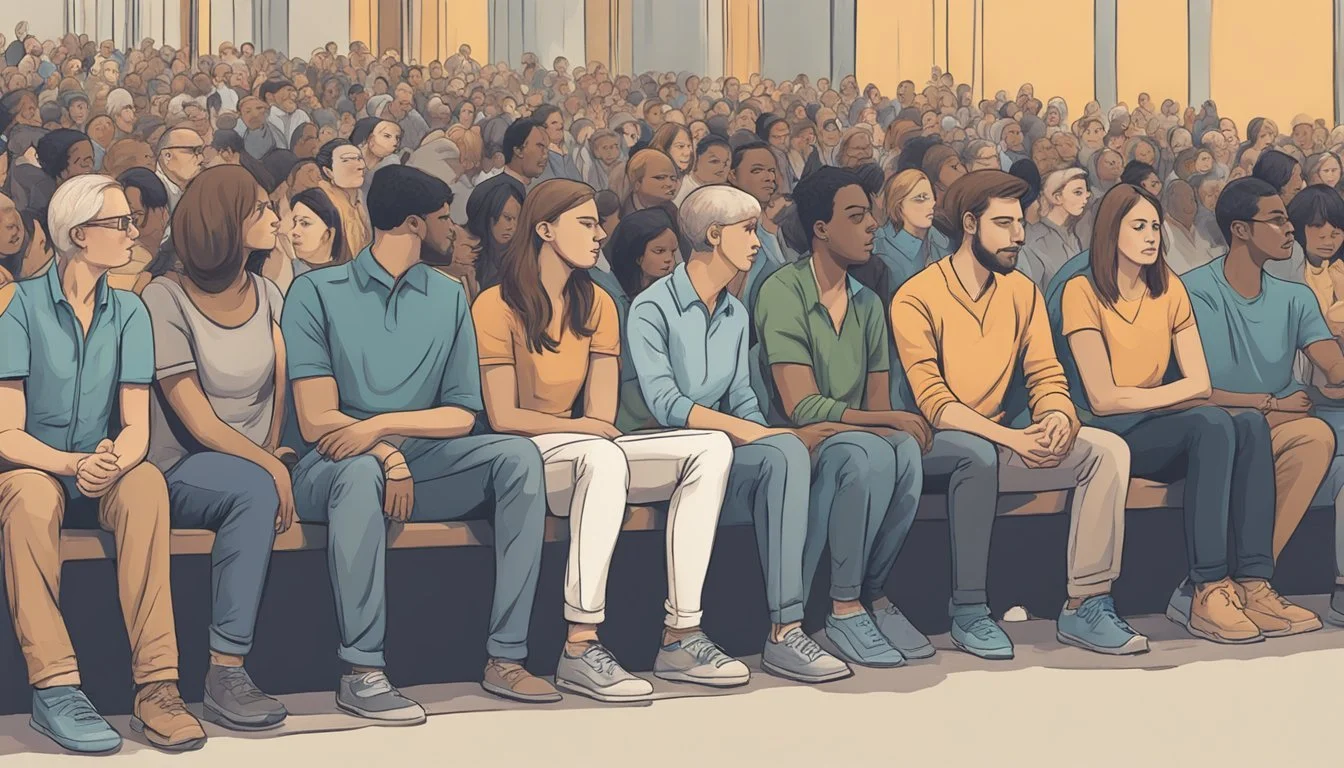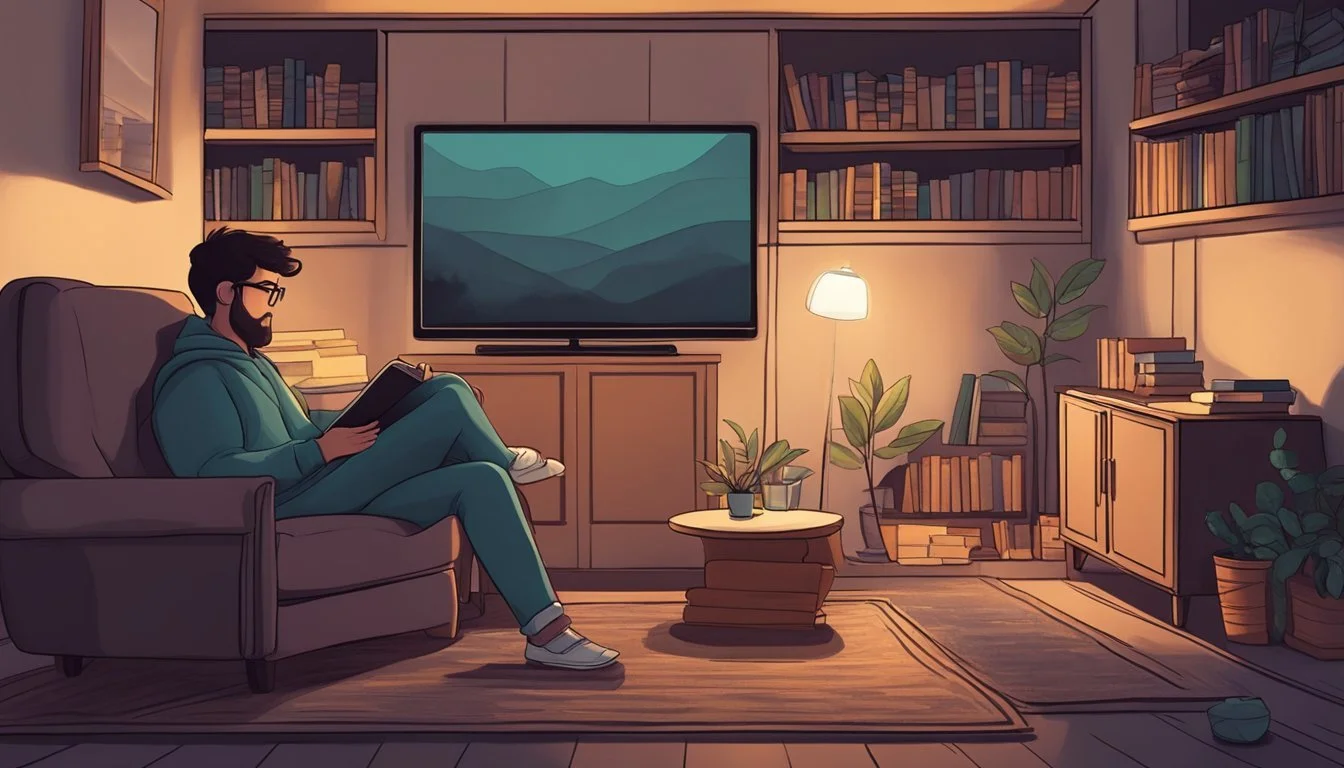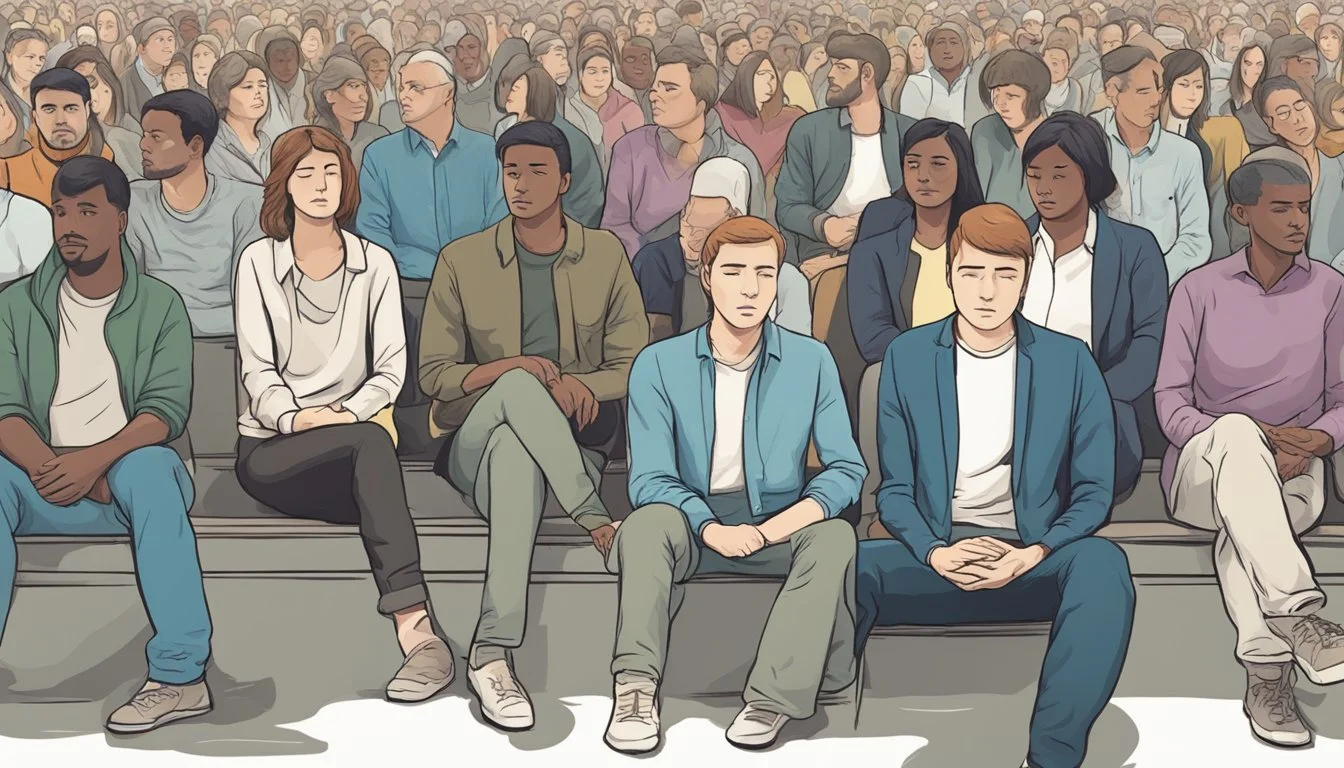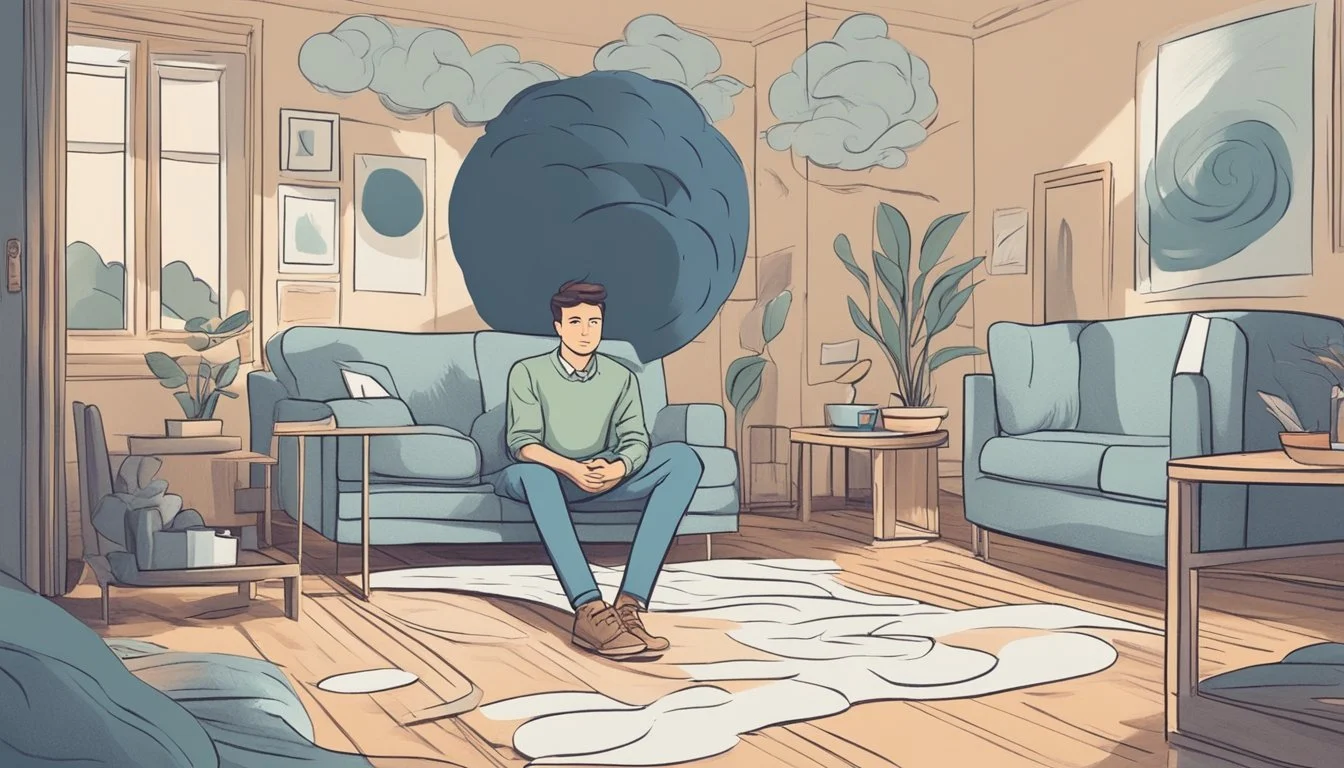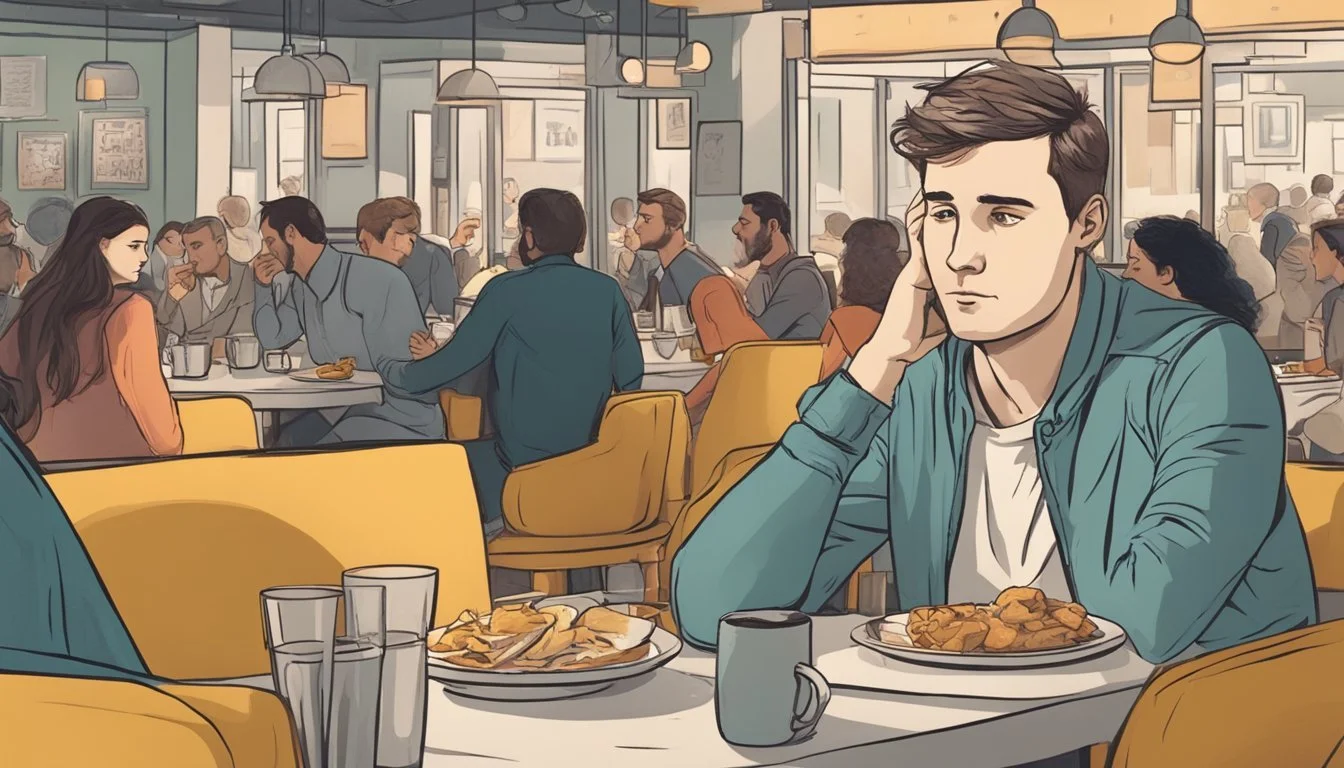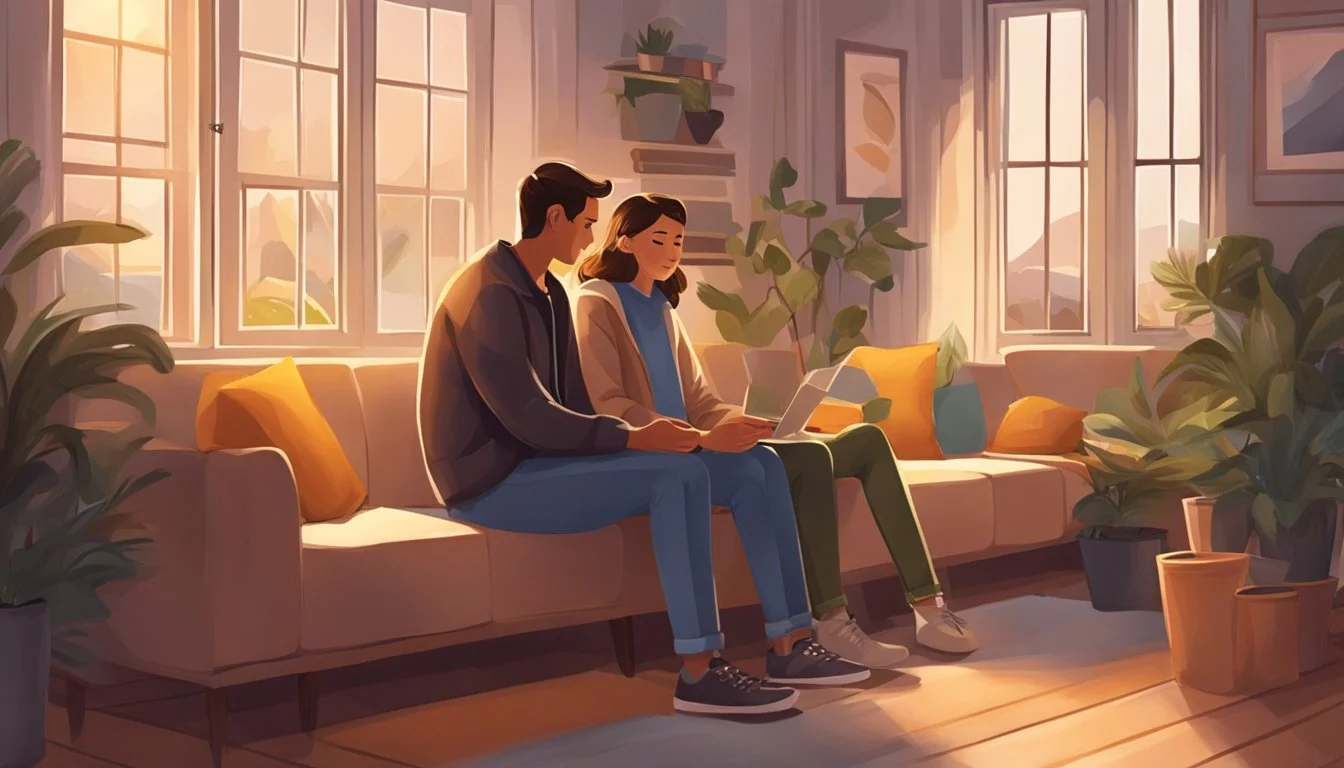14 Challenges Introverts Face in Romantic Relationships
Navigating Love as a Quiet Soul
Introverts bring a unique perspective to romantic relationships, often valuing deep connections and meaningful interactions over surface-level socializing. While these qualities can contribute to strong partnerships, they can also present challenges in the dating world and long-term relationships.
Introverted individuals may face several obstacles when navigating romantic relationships, from initial dating experiences to maintaining long-term partnerships. These challenges can stem from their natural tendencies towards solitude, their need for alone time to recharge, and their preferences for more intimate social settings. Understanding these potential hurdles can help introverts and their partners build stronger, more fulfilling relationships.
1) Difficulty Initiating Conversations
Introverts often struggle to initiate conversations in romantic settings. This challenge stems from their preference for deeper, more meaningful interactions over small talk.
Many introverts find it uncomfortable to approach potential partners or start casual conversations. They may feel anxious about saying the wrong thing or appearing awkward.
Small talk can feel especially daunting for introverts in dating scenarios. They may worry about running out of things to say or maintaining a flow of conversation.
This difficulty can lead to missed opportunities for connection. Introverts might avoid social situations where they could meet potential partners.
In established relationships, introverts may still find it challenging to initiate certain conversations. They might hesitate to bring up important topics or express their needs.
Overcoming this hurdle often requires practice and stepping out of one's comfort zone. Introverts can benefit from preparing conversation starters or focusing on shared interests to ease into dialogue.
2) Avoiding Social Events
Introverts often struggle with attending social gatherings in romantic relationships. They may feel uncomfortable in large groups or unfamiliar settings, leading to a desire to avoid these situations.
This can create tension with more extroverted partners who enjoy socializing. Introverts may feel pressured to attend events they'd rather skip, causing stress and anxiety.
The introvert's need for alone time to recharge can clash with a partner's desire for shared social experiences. This may lead to misunderstandings or feelings of guilt for declining invitations.
Finding a balance between social obligations and personal comfort is crucial. Open communication about social preferences and energy levels can help couples navigate this challenge.
Compromise is key. Introverts might agree to attend some events while their partners respect their need for quieter activities. Setting boundaries around frequency and duration of social engagements can also be helpful.
3) Feeling Overwhelmed in Crowds
Introverts often experience discomfort in large social gatherings, which can pose challenges in romantic relationships. They may feel drained and overwhelmed when surrounded by numerous people, even if those people are friends or family members of their partner.
This sensitivity to crowded environments can impact various aspects of a relationship. Social events, parties, or family gatherings that are important to an extroverted partner may be sources of stress for the introvert.
The introvert might need frequent breaks or prefer to leave early from such events. This can lead to misunderstandings or disappointment if their partner doesn't fully grasp the intensity of their discomfort.
Introverts typically have a less active dopamine reward system compared to extroverts. As a result, busy environments and extensive socializing can be particularly taxing for them.
To navigate this challenge, effective communication between partners is crucial. The introvert should express their needs and limits clearly, while their partner can work on understanding and accommodating these preferences.
Finding a balance between social engagements and quiet time is key. This might involve compromising on the frequency or duration of social events, or creating strategies to make crowded situations more manageable for the introvert.
4) Needing More Alone Time
Introverts require significant amounts of solitude to recharge their energy. This need for alone time can create challenges in romantic relationships, especially with more extroverted partners.
Introverts may feel drained after social interactions and crave solitude to recover. This can be misinterpreted by partners as disinterest or a desire to distance themselves from the relationship.
Balancing the need for alone time with quality time together can be tricky. Introverts may struggle to communicate their need for solitude without hurting their partner's feelings.
Partners of introverts may feel neglected or rejected when their introverted significant other retreats for alone time. This can lead to misunderstandings and conflicts if not addressed openly.
Introverts might feel guilty for wanting alone time, fearing it makes them seem less committed to the relationship. This internal conflict can cause stress and anxiety.
Finding ways to incorporate alone time into the relationship routine is crucial for introverts. Open communication about this need helps partners understand and support each other's requirements for personal space.
5) Finding It Hard to Express Feelings
Introverts often struggle with articulating their emotions in romantic relationships. They tend to process feelings internally, which can make it challenging to share them openly with partners.
This difficulty in expression can stem from a desire to maintain emotional privacy. Introverts may fear vulnerability or worry about overwhelming their partner with their inner world.
Communication styles also play a role. Introverts typically prefer thoughtful, written communication over spontaneous verbal exchanges. This preference can lead to delayed responses in emotional discussions.
Some introverts may feel their feelings are too complex to put into words. They might spend considerable time analyzing their emotions before feeling ready to share them.
Partners of introverts may misinterpret this reticence as a lack of care or investment in the relationship. This misunderstanding can create distance between couples if not addressed.
Learning to express feelings more openly is a key area of growth for many introverts in relationships. It requires practice, patience, and a supportive partner who understands their communication needs.
6) Being Misunderstood
Introverts often face the challenge of being misunderstood in romantic relationships. Their need for alone time and quieter social interactions can be misinterpreted as disinterest or aloofness by their partners.
This misunderstanding can lead to friction, as extroverted partners may feel rejected when introverts require space to recharge. Introverts may struggle to articulate their needs effectively, further complicating the situation.
The introvert's preference for deeper, one-on-one conversations over large group activities might be seen as antisocial. Their partners may not realize that introverts simply process social interactions differently and need time to reflect.
Introverts' tendency to think before speaking can be mistaken for a lack of emotional engagement. In reality, they are often deeply contemplating the conversation and formulating thoughtful responses.
The misconception that introverts are shy or lack confidence can impact how partners perceive them. This misunderstanding may lead to unnecessary attempts to "fix" or change the introvert's natural tendencies.
7) High Sensitivity to Criticism
Introverts often possess a heightened sensitivity to criticism in romantic relationships. This trait can stem from their introspective nature and tendency to analyze situations deeply.
When faced with criticism, introverts may experience intense emotional reactions. They might internalize negative feedback, replaying it repeatedly in their minds.
This sensitivity can lead to difficulties in communication with partners. Introverts may struggle to express their feelings or defend themselves effectively when criticized.
Constructive feedback from a partner can be misinterpreted as harsh judgment. This misunderstanding can create tension and distance in the relationship.
Introverts may need more time to process criticism and respond appropriately. This delay in reaction can be misunderstood by partners as indifference or avoidance.
To address this challenge, open and honest communication is crucial. Partners should strive to deliver feedback in a gentle, constructive manner.
Introverts can benefit from developing coping strategies to manage their sensitivity. Learning to differentiate between constructive criticism and personal attacks is essential.
Building self-confidence and self-acceptance can help introverts become more resilient to criticism. This personal growth can strengthen their relationships and improve overall communication.
8) Struggling with Small Talk
Introverts often find small talk challenging in romantic relationships. They may feel uncomfortable with superficial conversations and prefer deeper, more meaningful exchanges.
This struggle can manifest during early dating stages when light conversation is common. Introverts might experience anxiety or discomfort when faced with casual chit-chat about topics they consider unimportant.
In established relationships, introverts may still find difficulty engaging in everyday small talk with their partners. They might prefer silence or more substantial discussions about ideas, feelings, or shared interests.
This preference for deeper conversations can sometimes create tension. Extroverted partners might interpret an introvert's reluctance to engage in small talk as disinterest or aloofness.
Introverts may need to practice and develop small talk skills to navigate social situations more comfortably. Learning to balance light conversation with more meaningful dialogue can help strengthen their romantic connections.
Communicating this preference to partners is crucial. Understanding and compromise from both parties can lead to a more harmonious relationship dynamic that respects the introvert's communication style.
9) Overthinking Situations
Introverts often find themselves caught in a cycle of overthinking in romantic relationships. They may analyze every interaction, text message, or conversation with their partner, searching for hidden meanings or potential problems.
This tendency to overanalyze can lead to unnecessary stress and anxiety. Introverts might spend hours replaying conversations in their minds, wondering if they said the right thing or if their partner's tone indicated displeasure.
Small gestures or changes in routine can become magnified in an introvert's mind. They may interpret a delayed response to a message as a sign of disinterest or assume their partner is upset based on subtle changes in behavior.
Overthinking can also manifest as excessive worry about the future of the relationship. Introverts might create elaborate scenarios in their heads about potential breakups or conflicts that haven't actually occurred.
This constant mental activity can be exhausting for introverts. It may affect their ability to be present in the moment with their partner and fully enjoy the relationship. Learning to recognize and manage these thought patterns is crucial for introverts to maintain healthy, balanced relationships.
10) Feeling Drained After Socializing
Introverts often experience heightened fatigue after social interactions, which can pose challenges in romantic relationships. This exhaustion stems from their unique neurological makeup, particularly their dopamine reward system.
Unlike extroverts, introverts have a less active dopamine response to social stimuli. This means they don't get the same energizing effects from socializing that extroverts do.
For introverts, social interactions require significant mental energy. They must process conversations, navigate social cues, and manage potential overstimulation from their environment.
In romantic relationships, this can lead to difficulties when partners have differing social needs. An introvert may need more downtime after social events, while their partner might want to continue engaging.
Introverts may also struggle with guilt or feelings of inadequacy if they can't match their partner's social energy. They might push themselves to socialize more than comfortable, leading to burnout.
To address this challenge, open communication about social needs and energy levels is crucial. Couples can work together to find a balance that respects both partners' requirements for socializing and recharging.
11) Preference for Deeper Connections
Introverts often seek profound, meaningful connections in their romantic relationships. This preference can present challenges when their partners have different expectations or communication styles.
Introverts may find small talk or surface-level interactions unfulfilling. They typically crave in-depth conversations and emotional intimacy with their significant others.
This desire for depth can sometimes overwhelm partners who prefer lighter interactions. Introverts might struggle to balance their need for profound connections with their partner's comfort level.
In social situations, introverts may feel frustrated by their partner's engagement in casual conversations. They might long for more substantive discussions, even in group settings.
Introverts often value quality time spent one-on-one with their partners. They may prioritize these moments over shared social activities, which can create tension in the relationship.
The introvert's focus on deeper connections can lead to intense, highly committed relationships. However, it may also result in disappointment if their partner doesn't match their level of emotional investment.
12) Fear of Rejection
Fear of rejection poses a significant challenge for introverts in romantic relationships. Introverts often experience heightened sensitivity to potential rejection, which can impact their ability to form and maintain connections.
This fear may stem from introverts' tendency to deeply internalize their experiences and emotions. They may worry that revealing their true selves will lead to disapproval or abandonment by their partner.
Introverts might struggle to initiate romantic interactions or express their feelings due to this fear. They may hesitate to ask someone out or share their deeper thoughts and desires within a relationship.
The anxiety surrounding potential rejection can lead introverts to hold back emotionally, creating barriers to intimacy. They might avoid vulnerability or downplay their needs to protect themselves from perceived rejection.
This fear can also manifest as overthinking social interactions and interpreting neutral situations as signs of rejection. Introverts may scrutinize their partner's words and actions, looking for hidden meanings or signs of disapproval.
Overcoming fear of rejection requires self-awareness and a willingness to take emotional risks. Introverts can benefit from practicing self-compassion and reminding themselves that rejection is a normal part of relationships, not a reflection of their worth.
13) Limited Social Networks
Introverts often have smaller social circles compared to their extroverted counterparts. This can pose challenges in romantic relationships, particularly when it comes to meeting potential partners.
With fewer social connections, introverts may have limited opportunities to encounter new people organically. They might find themselves relying more on online dating platforms or structured activities to expand their dating pool.
The smaller network can also impact the relationship once it begins. Introverted individuals may struggle to introduce their partner to a wide circle of friends or attend large social gatherings together.
This limitation can sometimes lead to feelings of pressure or inadequacy, especially if their partner has a more extensive social network. Introverts may worry about not providing enough social experiences for their significant other.
However, introverts often cultivate deep, meaningful connections within their smaller social circles. These quality relationships can provide valuable support and insights for their romantic partnerships.
Recognizing the strengths of their close-knit connections can help introverts navigate this challenge. They can focus on introducing their partner to their trusted inner circle, fostering intimate gatherings that align with their comfort level.
14) Struggles with Spontaneity
Introverts often find spontaneous activities challenging in romantic relationships. They typically prefer structure and predictability, which allows them to mentally prepare for social interactions.
Unexpected plans or last-minute changes can be overwhelming for introverts. They may feel anxious or stressed when faced with impromptu outings or surprise gatherings with their partner's friends or family.
This preference for planning can sometimes be misinterpreted as rigidity or a lack of adventurousness by more spontaneous partners. Introverts might struggle to explain their need for advance notice without seeming inflexible.
Balancing their need for preparation with their partner's desire for spontaneity can be a source of tension. Introverts may feel pressured to engage in unplanned activities to please their partner, potentially leading to burnout or resentment.
Finding compromise is key. Introverts can work on embracing small spontaneous moments while communicating their boundaries. Partners can learn to provide some notice for larger plans, respecting the introvert's need for mental preparation.
Understanding Introversion in Relationships
Introversion shapes how individuals interact and connect in romantic partnerships. It influences communication styles, social needs, and emotional experiences within relationships.
Defining Introversion
Introversion is a personality trait characterized by a preference for less stimulating environments and more time for quiet reflection. In relationships, introverts often need more alone time to recharge their energy. They may prefer deeper one-on-one conversations over large group activities.
Introverts typically process information internally before expressing thoughts or feelings. This can lead to thoughtful, deliberate communication in relationships. They often value quality time with their partner over frequent social engagements.
Introverted individuals may require extra time to open up emotionally in new relationships. Once comfortable, they can form deep, meaningful connections with their partners.
Common Misconceptions
A prevalent myth is that introverts are antisocial or dislike people. In reality, many introverts enjoy social interactions but in smaller doses. They may prefer intimate gatherings over large parties.
Another misconception is that introversion equates to shyness. While some introverts are shy, many are confident and outgoing in comfortable settings. Introversion relates to energy source, not social ability.
Some believe introverts make less attentive partners. In fact, introverts often excel at listening and providing emotional support. They may show affection through thoughtful gestures rather than grand displays.
Communication Dynamics
Introverts face unique challenges in expressing themselves and connecting with partners. Their communication style often differs from extroverts, requiring mutual understanding and adaptation.
The Role of Silence
Introverts value silence and may use it as a form of communication. They often need quiet time to process thoughts and emotions before responding. This can be misinterpreted as disinterest or avoidance by more talkative partners.
Shared silence can foster a deep, unspoken connection between introverted couples. It allows for comfortable coexistence without constant verbal interaction.
Partners of introverts should recognize that silence doesn't always indicate a problem. Learning to appreciate quiet moments together can strengthen the relationship.
Expressing Needs and Boundaries
Introverts may struggle to articulate their needs and set boundaries in relationships. They often fear appearing demanding or confrontational.
This reluctance can lead to unmet needs and resentment over time. Introverts must practice expressing themselves clearly and assertively.
Partners can help by creating a safe space for open communication. Active listening and patience are crucial when an introvert is sharing their thoughts.
Setting aside dedicated time for discussions can help introverts prepare and feel more comfortable expressing themselves. This structured approach can lead to more productive conversations and stronger relationships.
Building Emotional Intimacy
Introverts often face unique challenges when fostering emotional closeness in romantic relationships. Creating a safe environment and finding the right balance between personal space and shared time are crucial aspects of deepening connections.
Creating Safe Spaces
Introverts thrive in environments where they feel secure expressing themselves. Establishing a judgment-free zone allows for open communication and vulnerability. This can be achieved through active listening and validating each other's feelings.
Setting aside dedicated time for deep conversations helps build trust. Quiet activities like reading together or taking walks can provide opportunities for meaningful exchanges.
Creating physical spaces in the home where both partners feel comfortable can enhance emotional intimacy. A cozy reading nook or a shared hobby area can serve as a retreat for connection.
Balancing Alone Time and Togetherness
Finding equilibrium between solitude and companionship is essential for introverts. Communicating needs for personal space openly and honestly prevents misunderstandings and resentment.
Scheduling regular date nights or shared activities ensures quality time together. These can be low-key, such as cooking a meal or watching a favorite show.
Respecting each other's need for solitude is crucial. Engaging in parallel activities, where both partners pursue individual interests while in the same space, can foster a sense of togetherness without overwhelming the introvert.
Developing a system for signaling when one needs alone time can be helpful. This could be as simple as a specific gesture or using a predetermined code word.

